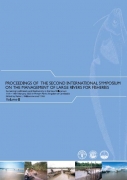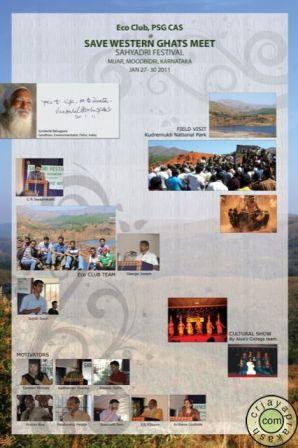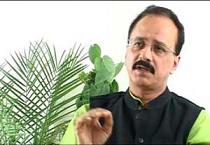Governance
Wetlands (Conservation and Management) Rules 2010 - Welcome, but a lost opportunity - Press release by SANDRP
Posted on 04 Feb, 2011 10:33 AMOn the occasion of the World Wetlands Day 2011, while we welcome the notification of Wetland (Conservation and Management) rules 2010 by the Union Ministry of Env
Proceedings of the second international symposium on the management of large rivers for fisheries by FAO and Mekong River Commission
Posted on 03 Feb, 2011 07:55 PM The second international symposium on the management of large rivers for fisheries was held by the Food and Agriculture Organisation of the United Nations (FAO) and Mekong River Commission on 11 - 14 February 2003 in Phnom Penh, Kingdom of Cambodia. It had three primary objectives: (a) To provide a forum to review and synthesise the latest information on large rivers; (b) To raise the political, public and scientific awareness of the importance of river systems, the living aquatic resources they support and the people that depend on them; and (c) To contribute to better management, conservation and restoration of the living aquatic resources of large rivers.
The second international symposium on the management of large rivers for fisheries was held by the Food and Agriculture Organisation of the United Nations (FAO) and Mekong River Commission on 11 - 14 February 2003 in Phnom Penh, Kingdom of Cambodia. It had three primary objectives: (a) To provide a forum to review and synthesise the latest information on large rivers; (b) To raise the political, public and scientific awareness of the importance of river systems, the living aquatic resources they support and the people that depend on them; and (c) To contribute to better management, conservation and restoration of the living aquatic resources of large rivers.
The symposium was organised in six sessions:
Session 1: Status of rivers
Session 2: Value of river fisheries
Session 3: Fisheries ecology and conservation
Session 4: Management of river fisheries
Session 5: Statistics and information
Session 6: Synthesis
It came up with the following recommendations for action -
- Improve the valuation of living river resources in order to contribute to equitable and sustainable management of fishery resources and properly place the fishery in the context of the other uses of rivers.
- Direct greater effort to better understanding the social and economic aspects of fisheries to support policy and management priorities; livelihood approaches will be a valuable tool.
- Communicate and engage with environment and water resources managers within the context of multi-use of water in order to accurately assess impacts and to sustain the benefits of river fisheries in an equitable manner.
- Develop processes that facilitate the users and beneficiaries of the fishery resource to assume greater control of its management.
- Establish appropriate mechanisms at national and basin level to enable negotiation for the needs of communities dependent upon the living aquatic resources. In particular further regulations need to be elaborated to protect general ecosystem function and provide for environmental flows.
- Use instruments such as the freshwater eco-regions approach, the Ramsar Convention and the guidelines for water allocation suggested by the World Commission on Dams, to enhance planning for conservation and sustainable use of river habitats.
- Incorporate ecological flow requirements of river-floodplain systems into development plans and impact assessments that affect river flows, taking into account the seasonality of the system and the environmental cues needed by the fish for migration and reproduction.
- Rehabilitate degraded ecosystems wherever possible. Prioritize schemes that ensure connectivity and protection of critical habitats.
MGNREGA completes 5 years - PIB Release
Posted on 03 Feb, 2011 01:34 PMAddressing a large gathering at Vigyan Bhawan on this occasion in New Delhi, the Prime Minister Dr. Manmohan Singh called upon the states to strengthen the Gram Sabhas for rural empowerment. He said the Ministry of Rural Development and Ministry of Panchayati Raj has jointly chalked out a plan to strengthen the Panchayats. Technical Units will be set up in Gram Panchayats and to improve the managerial efficiency every unit will have a Panchayat Development officer and one Junior Engineer. Focus would be on Left Wing Extremism(LWE) affected districts and the districts where more than Rs.100 crore have been spent under MGNREGA.
Mapping ecologically sensitive, significant and salient areas of Western Ghats: Proposed protocols and methodology by Western Ghats Ecology Expert Panel of the MoEF - An article from Current Science
Posted on 02 Feb, 2011 08:11 PMThe Western Ghats Ecology Expert Panel (WGEEP) of the Ministry of Environment and Forests, Government of India (GOI) had been asked to identify ESAs along the Western Ghats, and to suggest how to manage them. The concept of ESAs has been extensively discussed in the literature. Several ESAs have been set up in India over the last 22 years under the Environment Protection Act, 1986, and a GOI committee under the chairmanship of Pranob Sen has proposed certain criteria for identification of ESAs.
"Recommendations on water and sanitation services to urban poor"
Posted on 02 Feb, 2011 05:31 PMThe India WASH Forum newsletter for January 2011. It is an open platform for engagement on contemporary issues, for an independent credible voice in the water, sanitation and hygiene sector.
- Recommendations on water and sanitation services to urban poor
The group came up with a list of prioritised issues that need immediate attention if the urban poor were to be provided with sustainable and equitable water and sanitation services. - Water resources are under stress of depletion as well as denial of access for the poor
Drinking water needs are met primarily from ground water. Except for the large metros that suck away water from rivers, most small towns in India depend on ground water supply.
"Urban sanitation in India: life after Common Wealth Games"
Posted on 02 Feb, 2011 05:16 PMThe India WASH Forum newsletter for November 2010. It is an open platform for engagement on contemporary issues, for an independent credible voice in the water, sanitation and hygiene sector.
- Recent estimates of drinking water and sanitation status of India
As per the estimate, India has achieved a coverage of 68% rural population having access to an individual household toilet. - Urban sanitation in India: life after Common Wealth Games
The Commonwealth Games generated a media blitz recently. Unfortunately, instead of highlighting the sorry state of sanitation in India, the issue was trivialized in the media.
A report on Save Western Ghats Meet held at Moodbidri, Mangalore between 27th -30th January 2011
Posted on 02 Feb, 2011 03:11 PM
Corruption has fuelled India's economic growth - OneWorld South Asia interview with Devinder Sharma
Posted on 01 Feb, 2011 05:18 PM
Multinational Geomatics Capacity Building - Achievements and Challenges, Indian Institute of Remote Sensing, 7th - 8th April, 2011, Dehradun
Posted on 01 Feb, 2011 02:33 PMOrganizer: Indian Institute of Remote Sensing
Venue:Indian Institute of Remote Sensing, Dehradun
Topics:
- Geomatics training and Education in India and International Level
- Cross Border Education initiatives and achievements
- Institutional and legal frameworks at national and International level
Grassroutes 2011, Road-trips for Social Change
Posted on 01 Feb, 2011 02:09 PM Grassroutes is a Fellowship Program that supports outstanding and passionate young people to go on road-trips for social change. The select group of young people will travel across India, meet change-makers, work with social ventures, learn about developmental issues, live with the community and return with stories of social change, which will enable them to inspire a larger community into taking action.
Grassroutes is a Fellowship Program that supports outstanding and passionate young people to go on road-trips for social change. The select group of young people will travel across India, meet change-makers, work with social ventures, learn about developmental issues, live with the community and return with stories of social change, which will enable them to inspire a larger community into taking action.





